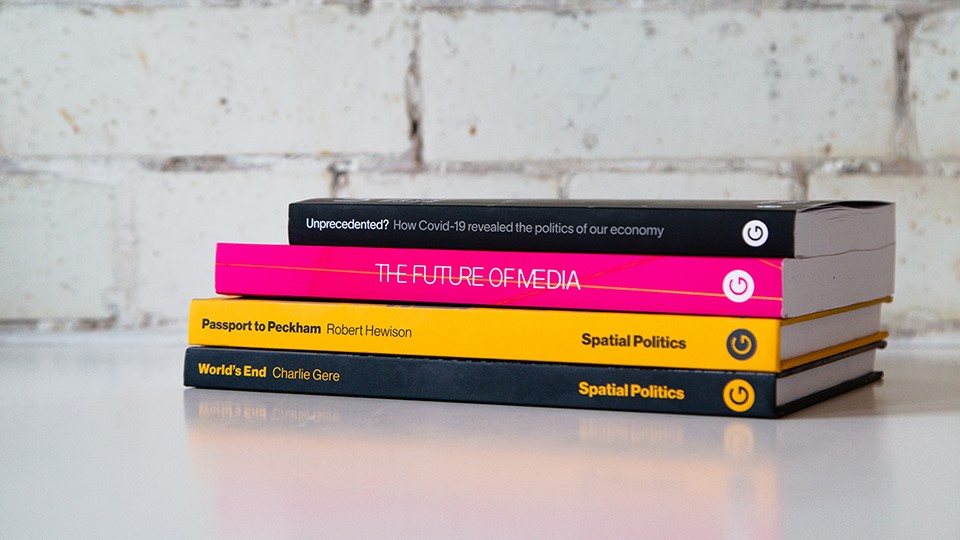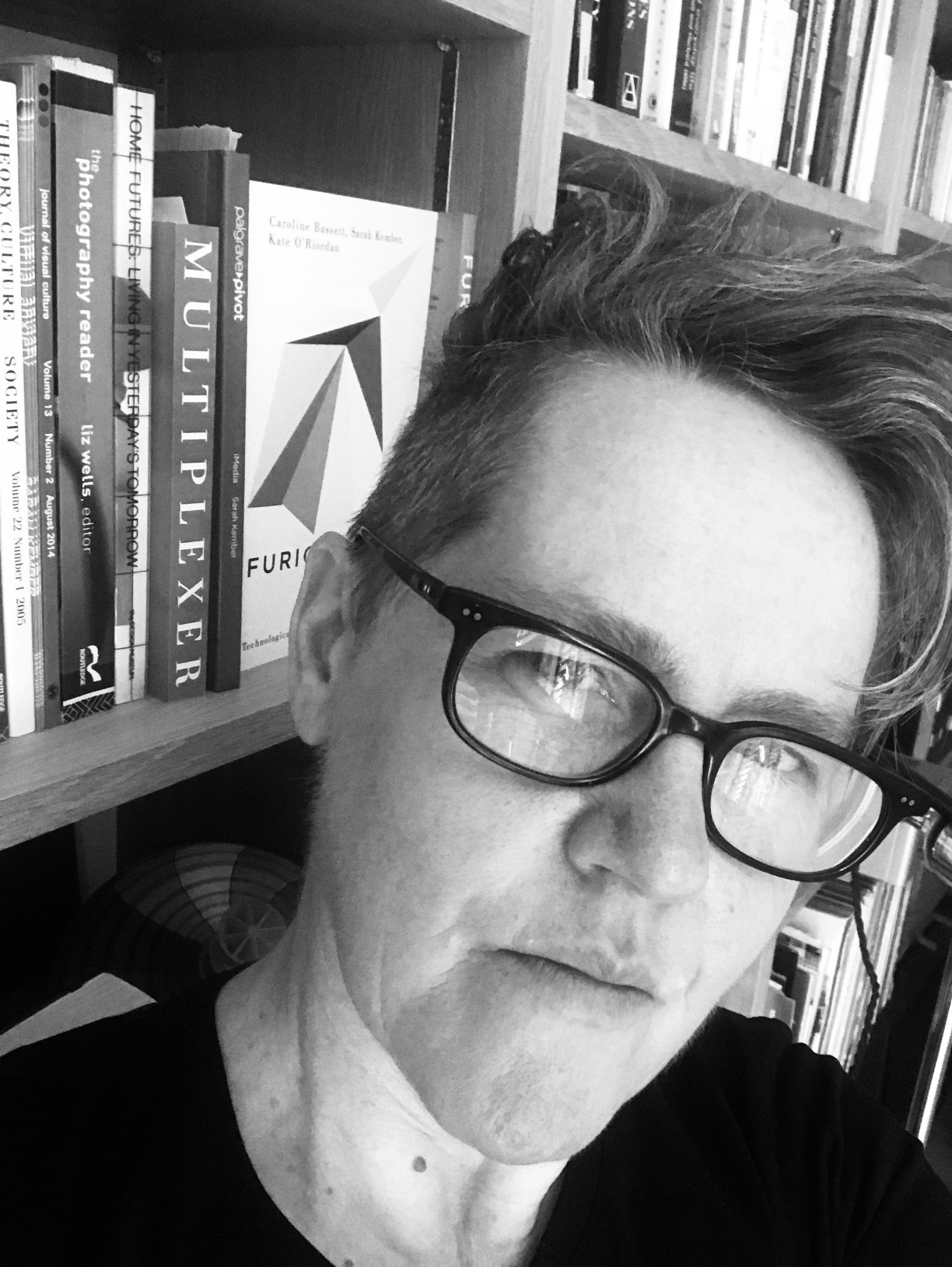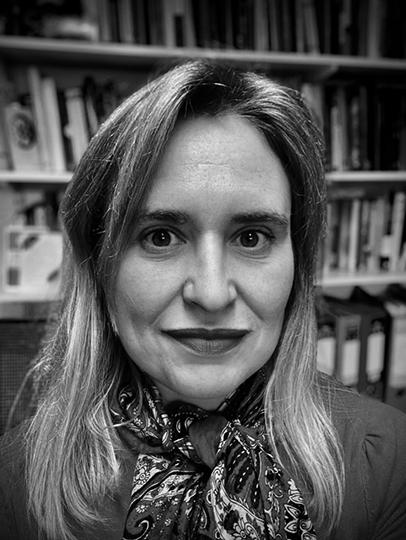About Goldsmiths Press
Goldsmiths Press is a university press aiming to revive and regenerate the traditions and values of university press publishing.
Additional information
Goldsmiths Press aims to revive and regenerate the traditions and values of university press publishing through the innovative use of print and digital media.
Our publishing cuts across disciplinary boundaries and blurs the distinctions between theory, practice, fiction and non-fiction.
We hope to create a culture around academic knowledge practices that is more inventive and less constrained while fostering a unique collaboration between writers, artists, archivists, librarians and publishing professionals.
Goldsmiths Press is the UK’s first green open access monograph university press publisher, combining open access with a fair and varied pricing model for print books.
We are committed to sustainable, non-commercial open access, and wherever possible, we transfer open access titles from our institutional repository (Goldsmiths Research Online) to PubPub, MIT’s open access platform.
Our books are distributed globally by MIT Press and Penguin US
Goldsmiths Press titles can be ordered from The Publishers Group UK

Open Access
Goldsmiths Press launched in 2016 as a green open access monograph publisher. Since then, we have been actively involved in debates and experiments with open access models in the quest for a sustainable, inclusive open access landscape.
To this end, we offer the following routes to open access:
- Full and immediate open access on receipt of a subvention to cover the costs of production. Costs may vary and should be discussed with the publisher, but for standard length (50-80,000 word) monographs with no images or with black and white images, the subvention is £7,500 (plus VAT). This route is compliant with UKRI policy on open access monographs:
- Final published version available open access after an embargo period of 12 months on receipt of a subvention of £5,000 (plus VAT). This route is compliant with UKRI policy on open access monographs.
- Final published version available open access after an embargo period of 24 months. No subvention required for monographs.
The subvention amounts given above assume black and white interior printing. For interior colour printing an additional subvention of £3,000 (plus VAT) is required for all open access models listed above.
All open access books are published under a creative commons license. CC-BY-NC-ND is our default license, but other licenses are available on request and we will comply with funder requirements.
https://creativecommons.org/licenses/by-nc-nd/4.0/
Authors retain full copyright of their open access books.
Open access books may be published in print and digital formats.
Our open access books receive the same rigorous and professional peer review, production and editorial treatment as our other books.
We work with MIT Press and Penguin Random House for print sales and distribution. Open access titles are indexed in the Directory of Open Access Books (DOAB) and feature in the OAPEN library of open access books.
Book Proposals
- Your proposal will initially be assessed by the Goldsmiths Press editorial team (and series editors, where relevant). If it fits with our publishing programme and we decide to proceed with your proposal, we will send it out for peer review. We aim to keep authors updated throughout the process.
- The review process is single blind. Proposals and sample material are sent to a minimum of two external peer reviewers. We will anonymise review feedback unless reviewers ask to be identified.
- Reviewers are selected for their scholarly expertise and experience in the proposal’s field. Suggestions for reviewers are sought from authors in order to help streamline the process, but we will send the proposal to at least one other reviewer as well.
- It is expected that peer reviewers will declare any potential conflicts of interest to Goldsmiths Press prior to accepting a review invitation.
- Reviewers are asked to provide feedback on: coverage (what is distinctive about the proposal, what the proposed book would add to the field, suggestions for improving scope or structure); readership/reception/market potential (including courses on which the book might be read) and overall recommendation.
- If two reviewer reports differ considerably, or are uncertain in their recommendations, a third review will usually be sought.
- Completed reviews are sent to the author/editor for a response which is then considered alongside the proposal and the peer reviews by the Goldsmiths Press editorial team, series editors where appropriate and the editorial board. A decision is made on whether to recommend the proposal for acceptance, to request revisions to the proposal (which may necessitate a further round of peer reviews of the revised material), or to decline the proposal for publication. The final decision rests with the editorial board.
- Membership of the editorial board consists of academic staff from a range of departments at Goldsmiths and other academic institutions in the UK and abroad. Series editors are invited to become members of the editorial board. Authors are offered a contract for their book once the proposal has been accepted by the board.
Final manuscripts
Final manuscripts are sent out for a final round of peer review. Reviewers are invited to comment on: whether the project represents a high-quality, original contribution to the field; whether the relevant modes of communication (writing, image making and so on) are of an acceptable standard; if there are any problems relating to accuracy and inclusiveness of citation, presentation or referencing systems; whether the book is ready for publication and if the reviewer has any suggestions for improvement.
Review feedback is communicated to the author and any final revisions to the manuscript are requested and implemented according to an agreed timeline. Following Goldsmiths Press approval, the manuscript is prepared for production by the editorial team.
Final manuscript reviewers are offered a copy of the relevant book as a token of our appreciation.
Editorial and Governance
Editorial Board
Our editorial board combines and crosses a range of disciplines. Members support the Press in identifying high-quality research and contribute to our peer review and selection process.
Members include:
- Rebecca Coleman
- Sean Cubitt
- Gabriel Dattatreyan
- Will Davies
- Livia Franchini
- Matt Fuller
- Jennifer Gabrys
- Stephen Graham
- Blake Morrison
- Deirdre Osborne
- Helena Reckitt
- Holly Rogers
- Anamik Saha
- Edgar Schmitz
- Atau Tanaka
- Jack Underwood
- Duncan Fairfax
- Dubravka Sekulic
- Helen V Pritchard
- Charlie Gere
- Simon O'Sullivan
- Andrew Dewdney
Advisory Board
Goldsmiths Press is supported by an extensive and growing international advisory board.
We are grateful to our advisors who act as ambassadors for the Press as well as contributing advice and expertise to help shape its current, and future, direction.
Members include:
- Lisa Adkins
- Howard Becker
- Michael Bhaskar
- Barbara Bolt
- Bruce Braun
- Roger Burrows
- Gavin Butt
- Joe Deville
- Kate Devlin
- Lori Emerson
- Maria Fusco
- Bill Germano
- Liam Gillick
- Tariq Goddard
- Joyce Goggin
- Yasmin Gunuratnam
- Fernando Gutiérrez
- Matthew Harle
- Gay Hawkins
- Stefan Helmreich
- Keisuke Kitano
- Deepa Kumar
- Brandon LaBelle
- Andrew Lockett
- Alessandro Ludovico
- Wolfgang Marx
- Tara McPherson
- Alexandra Midal
- Lisa Nakamura
- Jenna Ng
- Dave O’Brien
- Tom Overton
- Andrew Parker
- Sarah Rifky
- Nelson Rodriguez
- Laetitia Rutherford
- Sukhdev Sandhu
- Steven Shaviro
- Margrit Shildrick
- Ali Smith
- Carol Stabile
- Philip Terry
- Iris Van der Tuin
- Simon Worthington
Editorial Team
GOLD SF
Gold SF, an imprint of Goldsmiths Press, is supported by an Editorial Board comprised of established academics, authors, and experts.
Goldsmiths Shorts Editorial Board
The Goldsmiths Shorts pamphlet series brings together poetry, fiction and non-fiction by alumni from across the creative writing programmes and modules, taught within the Department of English and Comparative Literature at Goldsmiths.
The alumni are asked to consider the pamphlet as an introduction to their work so far, as a unit that requires brevity but that also allows room for them to declare themselves. They are also invited to view the pamphlet’s history as an artefact of experimentation or provocation.














